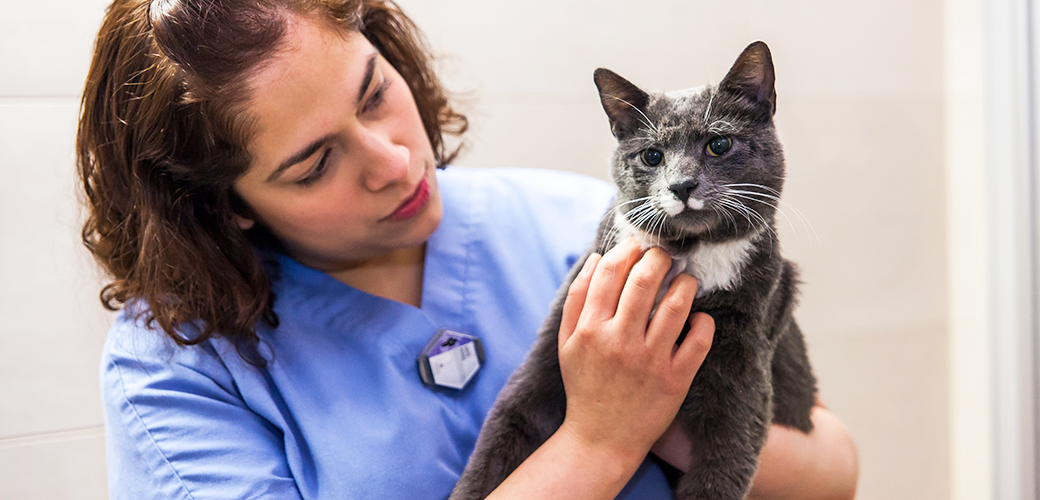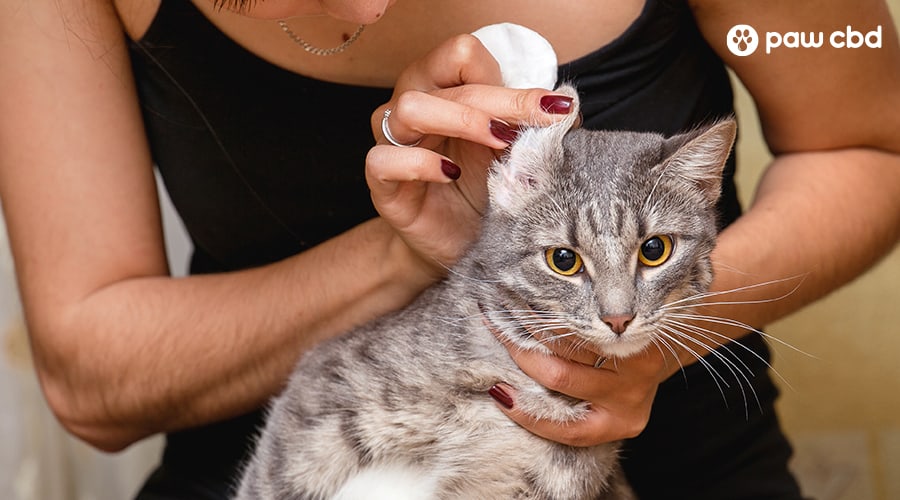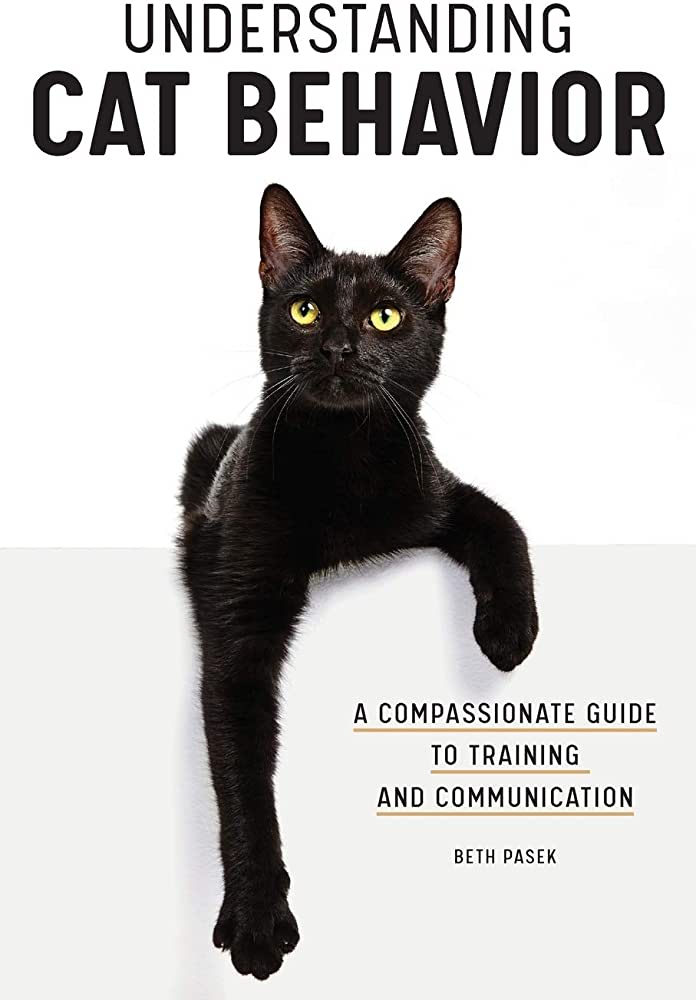Yes, cats can get motion sickness. Motion sickness is not limited to humans.
Cats can also get motion sickness, just like any other animal. This condition occurs when there is a disturbance in the inner ear balance caused by car, plane, or boat movements. Symptoms of motion sickness in cats include vomiting, excessive drooling, and general discomfort. If you plan to travel with your cat, it’s important to take preventive measures, such as short trips to get them used to the motion, feeding them a small meal before travel, and placing them in a comfortable, safe carrier. If the condition persists, consult with your veterinarian to discuss possible remedies.

Credit: www.aspca.org
Definition Of Motion Sickness In Cats
Motion sickness is a common issue in cats. It is defined by a feeling of nausea and vomiting that occurs because of a disturbance in the balance system. The physiology of motion sickness involves the vestibular system, which manages balance and spatial orientation.
Causes of motion sickness in cats include car rides, air travel, and boat rides. Common symptoms of motion sickness in cats are drooling, restlessness, and a reluctance to move or eat. If you suspect that your cat has motion sickness, you should consult with your vet.
They may prescribe medication to ease your cat’s symptoms and make travel more comfortable. Remember to observe your cat’s behavior while traveling. With proper care, your feline can enjoy a stress-free ride.
Factors Affecting Motion Sickness In Cats
Motion sickness in cats can be caused by a variety of factors, including age and gender. Younger cats and females are more prone to motion sickness. Some cat breeds have been identified as being more susceptible to this condition, including siamese, burmese, and abyssinian.
Additionally, pre-existing medical conditions such as gastrointestinal or vestibular problems can also increase the risk of motion sickness. Understanding these factors and taking necessary precautions, such as limiting travel time and providing medications prescribed by a veterinarian, can help alleviate this uncomfortable and often distressing condition for our feline friends.
19 Warning Signs That Your Cat Is Begging For Help
Treatment And Prevention Of Motion Sickness In Cats
Motion sickness can affect cats just as it can humans. Non-medical treatments, such as gradual exposure and soothing music, can ease symptoms. Medications are also available to prevent or reduce motion sickness, but should only be used under veterinary supervision.
Natural remedies, such as ginger or chamomile, can also help alleviate symptoms. It’s important to note that certain cat breeds may be more prone to motion sickness, and that taking precautions such as withholding food and water before travel can also help.
By understanding and addressing motion sickness in cats, owners can ensure a more comfortable and stress-free experience for their feline friends.
Traveling With Cats: Do’S And Don’Ts
Traveling with cats can be a challenging experience. However, proper planning and preparation can make it more enjoyable for both you and your cat. To avoid motion sickness, try to keep your cat’s stomach empty before the trip. If your cat needs food or medication during the journey, consult your veterinarian first.
Secure your cat in a carrier or harness to ensure car safety. Also, consider your cat’s comfort, such as bringing a familiar blanket, toy or cushion. Car safety tips for cats include frequent breaks for water, food, and litter boxes.
Additionally, make sure your cat’s id tag has accurate contact information. With the right preparations, traveling with your feline friend can be a rewarding experience.
Alternative Transportation Methods For Cats
Motion sickness is not common in cats, but it can happen during car rides. Air travel, while faster, can be risky for cats due to their stress levels. If you must fly with your cat, speak with your veterinarian and airline ahead of time.
Trains and boats can also be a good alternative for travel with cats. Train travel ensures a smoother ride, while boats allow for a more relaxed experience. When choosing the right transportation method for your cat, consider their personality, age, and any medical conditions they may have.
Ensure that your cat is comfortable, has enough food and water, and has a safe carrier during travel. By following these tips, you can ensure a stress-free and safe transportation experience for your feline friend.
Frequently Asked Questions On Do Cats Get Motion Sickness
Do Cats Get Motion Sickness?
Yes, cats do get motion sickness. Some cats experience vomiting, drooling, and excessive meowing while traveling in cars, planes, or boats.
What Causes Motion Sickness In Cats?
Motion sickness in cats is caused by an imbalance between the inner ear and the eyes, which creates confusion in the brain and leads to nausea and vomiting.
How Can You Prevent Motion Sickness In Cats?
You can prevent motion sickness in cats by gradually acclimating them to car or plane journeys, providing them with proper ventilation during travel, and using medication prescribed by a veterinarian.
What Are The Symptoms Of Motion Sickness In Cats?
The symptoms of motion sickness in cats include vomiting, drooling, excessive meowing, lethargy, restlessness, and loss of appetite.
Conclusion
After discussing all the possible causes, symptoms, and treatments for cat motion sickness, we can conclude that these furry creatures do suffer from it, but not as frequently as humans do. Although there is no definite cure for it, we can still take preventive measures such as slowly introducing them to car travel, ensuring proper ventilation inside the car, and providing comfortable bedding.
Additionally, we can opt for medication or herbal remedies as prescribed by the vet. However, as always, prevention is better than cure, and being cautious and observant with our feline friends can save them from unnecessary stress and discomfort. With proper planning and care, we can make traveling with our cats an enjoyable experience for both the cat and the owner.
So, the next time you plan a trip, remember to give your feline friend all the necessary care and attention needed to make the trip a wonderful one.
{ “@context”: “https://schema.org”, “@type”: “FAQPage”, “mainEntity”: [ { “@type”: “Question”, “name”: “Do cats get motion sickness?”, “acceptedAnswer”: { “@type”: “Answer”, “text”: “Yes, cats do get motion sickness. Some cats experience vomiting, drooling, and excessive meowing while traveling in cars, planes, or boats.” } } , { “@type”: “Question”, “name”: “What causes motion sickness in cats?”, “acceptedAnswer”: { “@type”: “Answer”, “text”: “Motion sickness in cats is caused by an imbalance between the inner ear and the eyes, which creates confusion in the brain and leads to nausea and vomiting.” } } , { “@type”: “Question”, “name”: “How can you prevent motion sickness in cats?”, “acceptedAnswer”: { “@type”: “Answer”, “text”: “You can prevent motion sickness in cats by gradually acclimating them to car or plane journeys, providing them with proper ventilation during travel, and using medication prescribed by a veterinarian.” } } , { “@type”: “Question”, “name”: “What are the symptoms of motion sickness in cats?”, “acceptedAnswer”: { “@type”: “Answer”, “text”: “The symptoms of motion sickness in cats include vomiting, drooling, excessive meowing, lethargy, restlessness, and loss of appetite.” } } ] }



